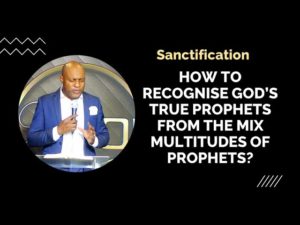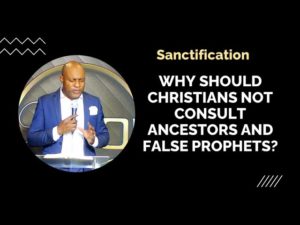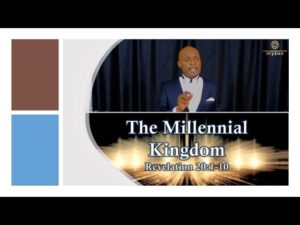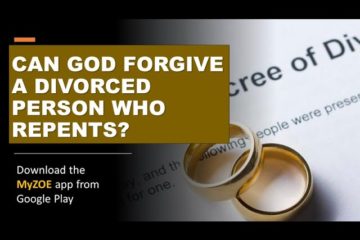CHAPTER ONE
What is marriage? What is its true purpose?
How does God define marriage?
Simply put, God views marriage as the sacred union between the husband and his legal wife. However, when people think of marriage today, they all see the husband-and-wife partnership in the management of their marriage affairs. It is a fatal mistake. When we think of marriage, we must think of the union in which both parties must naturally invest in. That union is love because God is love. That love is the node between such a man and his wife. In Genesis 2:20-25 (Matt 19:3-5), marriage was originally created by God so that the couple can nurture their sacred union, called marriage. From it, we understand that:
- Contrary to what we have been taught in most churches and society, “we do not marry to become husband and wife, but we marry to become one flesh.
- Marriage is sustained by the strength of the union between the couple, which, in return, is supported by the amount of love invested in the relationship. When we both invest love in our union, that is, working to become one flesh, our marriage will stand any evil tests.
- Becoming one flesh means to become one in flesh and in spirit. To be one means to agree in everything and at every level. Amos 3:3“How can two walks together unless they are agreed?” So, a marriage where two walks separately (in flesh and in mind) is not marriage like God intended.
- Becoming one flesh is a sacred service as unto God. 1 Corinthians 6:16, ESV: “Or do you not know that he who is joined to a prostitute becomes one body with her?”. Put differently according to The Message (MSG): 1 Corinthians 6:16-20-16-20 says: There is more to sex than mere skin on skin. Sex is as much spiritual mystery as physical fact. As written in Scripture, “The two become one.” Since we want to become spiritually one with the Master, we must not pursue the kind of sex that avoids commitment and intimacy, leaving us lonelier than ever—the kind of sex that can never “become one.” There is a sense in which sexual sins are different from all others. In sexual sin we violate the sacredness of our own bodies, these bodies that were made for God-given and God-modeled love, for “becoming one” with another. Or did not you realize that your body is a sacred place, the place of the Holy Spirit? Don’t you see that you cannot live however you please, squandering what God paid such a high price for? The physical part of you is not some piece of property belonging to the spiritual part of you. God owns the whole works. So, let people see God in and through your body.
From the above, we can say that the main reason for marriage is purely “union” and nothing else. How do we know this? Simple. Let us read Genesis 2:20-25. The NIV says:
20 So the man gave names to all the livestock, the birds in the sky and all the wild animals. But for Adam[a] no suitable helper was found. 21 So the Lord God caused the man to fall into a deep sleep; and while he was sleeping, he took one of the man’s ribs[b] and then closed the place with flesh. 22 Then the Lord God made a woman from the rib[c] he had taken out of the man, and he brought her to the man.
23 The man said, “This is now bone of my bones and flesh of my flesh; she shall be called ‘woman,’ for she was taken out of man.” 24 That is why a man leaves his father and mother and is united to his wife, and they become one flesh. 25 Adam and his wife were both naked, and they felt no shame.
So, Adam and Jesus taught that “man shall leave his parents to unite, that is, to become one flesh with his wife. They did not say that man shall marry his wife to become a husband to his wife, NO. The main reason why we have had so many problems in our marriages today is because we have been taught that we marry to become husbands and wives. But that is a big problem because our focus is on our responsibilities, obligations, and rights than the union that makes the marriage.
The reason why the focus is misleadingly wrong is because husband or wife is the administrative responsibility within the marriage institution. These titles help couples and society know what our respective responsibilities are in the institution that we call marriage. But that is not what marriage really is. Marriage is Union. It is the union that is created (by God) between the man and his woman. And in that union, each has a responsibility, summarized in one word: the man is the husband, and the woman is the wife.
In conclusion, many have unstable marriages because they do not invest in their spiritual, emotional, and physical union. Without this union, there is no marriage. Without this union, their marriage will continue to suffer until the worse happens: Divorce.
Marriage is the place where each partner must feel emotionally, spiritually, and physically satisfied. When these needs are not met, the marriage will suffer. So, marriage is beyond the husband-and-wife responsibilities.
Genesis 1:27-28: “So God created man in his own image, in the image of God he created him; male and female he created them. And God blessed them. And God said to them, ‘Be fruitful and multiply and fill the earth and subdue it and have dominion over the fish of the sea and over the birds of the heavens and over every living thing that moves on the earth.’ ”
Song of Solomon 4:9: “You have captivated my heart, my sister, my bride; you have captivated my heart with one glance of your eyes, with one jewel of your necklace.”
CHAPTER TWO
How is marriage perceived in different societies versus the Bible? Which explain the causes of gender based abuses.
Do modern dictionaries agree with God’s definition?
Yes, they do, but in practice, most cultures don’t. Before we look at how cultures change this, let first see how marriage is defined. According to Vocabulary.com, a husband is a married man, that is, one who has united with a woman… The word husband originally comes from the Old Norse hūsbōndi, where hūs meant house and bōndi meant dweller. As a verb, husband means to conserve resources and use them frugally. This means that the title husband refers to the responsibilities of a married man in his marriage and society they live in. According to the Merriam-Webster Dictionary, a husband is a male partner in a marriage. That means, in some cultures, that he is the manager of another’s property – that he has to manage prudently and economically (the affairs of the family of the couple).
According to the Wikipedia, a husband is a male, a spouse or partner, in a marital relationship. It refers to the rights and obligations of that male, spouse or partner regarding his spouse, others, and his status in the community and in law. These vary between societies and cultures, and have varied over time.
Why then do we confuse marriage and our respective responsibilities as married couples?
It is amazing how women and marriage has been perceived in all the societies in the world to date. We can see a fight between the evil ruling men of this world and the good in them that makes humans introduce some laws that help improve the power relations between men and women. Despite this societies have a hard time addressing the power relations between men and women. Which explains the reason why we witness gender-based violence and inequality across the nations of the world.
In Asia cultures
Hinduism
16th-century Samurai Toyotomi Hideyoshi had his wives and concubines because it was culturally accepted that a man can have such. In Indo-Aryan languages, a wife is known as Patni, which means a woman who shares everything in this world with her husband and he does the same, including their identity. Decisions are ideally made in mutual consent. A wife usually takes care of anything inside her household, including the family’s health, the children’s education, a parent’s needs.
The majority of Hindu marriages in rural and traditional India are arranged marriages. Once they find a suitable family (family of same caste, culture and financial status), the boy and the girl see and talk to each other to decide the final outcome. In recent times however the western culture has had significant influence and the new generations are more open to the idea of marrying for love.
Indian law has recognized rape, sexual, emotional or verbal abuse of a woman by her husband as crimes. In Hinduism, a wife is known as a Patni or Ardhangini (similar to “the better half“) meaning a part of the husband or his family. In Hinduism, a woman or man can get married, but only have one husband or wife respectively.
In India, women may wear vermillion powder on their foreheads, an ornament called Mangalsutra (Hindi: मंगलसूत्र) which is a form of necklace, or rings on their toes (which are not worn by single women) to show their status as married women.
Buddhism and Chinese folk religions
China’s family laws were changed by the Communist revolution; and in 1950, the People’s Republic of China enacted a comprehensive marriage law including provisions giving the spouses equal rights with regard to ownership and management of marital property.[52]
Japan
In Japan, before enactment of the Meiji Civil Code of 1898, all of the woman’s property such as land or money passed to her husband except for personal clothing and a mirror stand.[53] See Women in Japan, Law of Japan.
Wife in Abrahamic religions
Wife in Islam
Women in Islam have a range of rights and obligations (see main article Rights and obligations of spouses in Islam). Marriage takes place on the basis of a marriage contract. The arranged marriage is relatively common in traditionalist families, whether in Muslim countries or as first or second generation immigrants elsewhere.
Women in general are supposed to wear specific clothes, as stated by the hadith, like the hijab, which may take different styles depending on the culture of the country, where traditions may seep in.[Quran 24:31][Quran 33:59][54] The husband must pay a mahr to the bride.
Traditionally, the wife in Islam is seen as a protected, chaste person that manages the household and the family. She has the ever important role of raising the children and bringing up the next generation of Muslims. In Islam, it is highly recommended that the wife remains at home although they are fully able to own property or work. The husband is obligated to spend on the wife for all of her needs while she is not obligated to spend even if she is wealthy. Muhammad is said to have commanded all Muslim men to treat their wives well. There is a Hadith by Al-Tirmidhi, in which Muhammad is said to have stated “The believers who show the most perfect faith are those who have the best character and the best of you are those who are best to their wives.”
Traditionally, Muslim married women are not distinguished from unmarried women by an outward symbol (such as a wedding ring). However, women’s wedding rings have recently been adopted in the past thirty years from the Western culture.
Wife in Judaism
Rabbinic Judaism
Women in Judaism have a range of rights and obligations ( see main article Jewish views on marriage). Marriage takes place on the basis of a Jewish marriage contract, called a Ketubah. There is a blur of arranged marriages and love marriages in traditional families. Married women, in traditional families, wear specific clothes, like the tichel.
In ancient times the husband paid a mohar. Genesis 34:12
In ancient times there were Israelite women who were Judge, Queen regnant, Queen regent, Queen mother, Queen consort, and Prophetess: Deborah was the wife of an Israelite man whose name was Lapidoth, which means “torches.” Deborah was a Judge and a Prophetess. Esther was the Jewish wife of a Persian King named Ahasuerus. Esther was Queen consort to the King of Persia and at the same time she was Queen regnant of the Jewish people in Persia and their Prophetess. Bathsheba was the Queen consort of King-Prophet David and then the Queen mother of King-Prophet Solomon. He rose from his throne when she entered and bowed to her and ordered that a throne be brought and he had her sit at his right hand, which is in stark contrast to when she was Queen consort and bowed to King-Prophet David when she entered. Prophet Jeremiah portrays a Queen mother as sharing in her son’s rule over the kingdom in Jeremiah 13:18-20. The wife of Prophet Isaiah was a Prophetess. Isaiah 8:3.
From Old testament to Modern Jews
Jews gradually change the original teachings of the Bible despite Adam’s teaching in Genesis 2, women in marriage ceased to be helpers but began to be treated as owned properties, worse when they marry them. But we can clearly see that it was not so in the beginning. According to the hebrew.jerusalemprayerteam.org, we witness, from the old testament to date, a change in the meaning of the Hebrew word for ‘husband’ leading to two words from the biblical word to a modern term:
The word for husband in the Bible is mostly ‘eesh’ but we also see the word ‘ba•al‘ with the same meaning. ‘Eesh’ also means a ‘man’. But, we see in Matt19:3-5, how ‘baal’ became the word that has been used in the modern era, until this very day. This word is quite troubling because of its connotation. In all other contexts and expressions, ‘baal’ means ‘an owner’. That is why, we know that during the biblical era (and even today in some societies) women were (and have been) considered property of their master’s household. What is hard to explain is why modern Hebrew has picked this politically incorrect, connotation loaded word instead of ‘eesh’ which was more often used in the Bible than ‘baal’, yet has no ownership connotations.
Legal rights of the modern wife
Historically and in civil law jurisdictions, marital power (Latin: potestas maritalis, Dutch: maritale macht, Afrikaans: maritale mag) was a doctrine in terms of which a wife was legally an incapax under the usufructory tutorship (tutela usufructuaria) of her husband. The marital power included the power of the husband to administer both his wife’s separate property and their community property. A wife was not able to leave a will, enter into a contract, or sue or be sued, in her own name or without the permission of her husband.[1] It is very similar to the doctrine of coverture in the English common law, as well as to the Head and Master law property laws (From Wikipedia, the free encyclopedia).
The legal rights of a wife have been since the 19th century, and still are, in many jurisdictions subject to debate. This subject was in particular addressed by John Stuart Mill, in The Subjection of Women (1869). Historically, many societies have given sets of rights and obligations to husbands that have been very different from the sets of rights and obligations given to wives. In particular, the control of marital property, inheritance rights, and the right to dictate the activities of children of the marriage, have typically been given to male marital partners. However, this practice was curtailed to a great deal in many countries in the twentieth century, and more modern statutes tend to define the rights and duties of a spouse without reference to gender. Among the last European countries to establish full gender equality in marriage were Switzerland,[4] Greece,[5] Spain,[6] and France[7] in the 1980s. In various marriage laws around the world, however, the husband continues to have authority; for instance the Civil Code of Iran states at Article 1105: “In relations between husband and wife; the position of the head of the family is the exclusive right of the husband”. (From Wikipedia, the free encyclopedia).
What does the bible really teach?
In summary, Christian marriage is to be between one woman (adult female) and one man (adult male) and that God Himself joined them and that no human is to separate them, according to Christ (Matthew 19:4-6). The Holy New Testament states that an unmarried Christian woman is to celibate or is to become the Christian wife of one husband to avoid sexual immorality and for sexual passion (1 Cor 7:1-2 & 8-9). Holy New Testament permits divorce of a Christian wife by a Christian husband only if she has committed adultery (Matthew 5:32). The Holy New Testament allows a Christian widow to (re)marry a man she chooses (1 Cor 7:39) but forbids a divorced Christian woman to (re)marry a man because she would be committing adultery if she did (Matthew 5:32), she is to remain unmarried and celibate or be reconciled with her husband (1 Cor 7:1-2 & 8-9 and 1 Cor 7:10-11). A Christian wife can divorce a non-Christian husband if he wants a divorce (1 Cor 7:12-16). Christian husbands are to love their Christian wives as Christ loved the Church (Ephesians 5:25) and as he loves himself (Ephesian 5:33). The Christian wife is to respect her husband (Ephesians 5:33). Christian husbands are to not be harsh with their Christian wives (Colossians 3:19) and to treat them as a delicate vessel and with honor (1 Peter 3:7).
How is this in practice?
When people think of marriage, they see husband and wife. But marriage must first point to the union of the husband and his wife. The reason for marriage is union, not to become husband and wife to the other. In Genesis 2:20-25, Adam, 23 The man said, “This is now bone of my bones and flesh of my flesh; she shall be called ‘woman,’ for she was taken out of man.” 24 That is why a man leaves his father and mother and is united to his wife, and they become one flesh. 25 Adam and his wife were both naked, and they felt no shame.
So wife here means “bone of my bones and flesh of my flesh“. This is ownership, but a oneness, a union and marriage of two that are now “One body“, “one flesh“. This oneness is such that the must become naked to each other to the degree that they feel no shame. Further more, if we agree that physical originates from spiritual, then, as one flesh, they should be one mind. The question now is: Whose mind must they submit to? Must the man submit to the wife’s mind or must the woman submit to the husband’s mind? Let’s see what the Bible says about this:
In verse 18 of Genesis 10, The Lord God said, “It is not good for the man to be alone. I will make a helper suitable for him.” So we see here that God formed Eve from Adam’s ribs and formed her to become a helper to Adam, her husband. Now we all understand that a helper supports and helps propel the one that the helper helps, in this case, the husband. So the woman is expected to submit to the husband by helping him fulfil whatever he is called to do as a man and husband.
Jesus opposed the culture where women were woman is considered the property of their master’s household in Matthew 5:31, saying: 31 It has also been said, ‘Whoever divorces his wife must give her a certificate of divorce (Deut 24:1-3; Deut24:1-4).’ 32 But I tell you that anyone who divorces his wife, except for sexual immorality, brings adultery upon her. And he who marries a divorced woman commits adultery (Jeremiah 3:1; Malachi 2:16; Matthew 5:31–32; Luke 16:18; Mark 10:3-10).
In Ephesians 5:31 (NIV), verse21 says: Submit to one another out of reverence for Christ.
22 Wives, submit to your husbands as to the Lord. 23 For the husband is the head of the wife as Christ is the head of the church, His body, of which He is the Savior. 24 Now as the church submits to Christ, so also wives should submit to their husbands in everything.
25 Husbands, love (=serve/give yourselves to) your wives, just as Christ loved the church and gave Himself up for her 26 to sanctify her, cleansing her by the washing with water through the word, 27 and to present her to Himself as a glorious church, without stain or wrinkle or any such blemish, but holy and blameless.
28In the same way, husbands ought to love their wives as their own bodies. He who loves his wife loves himself. 29Indeed, no one ever hated his own body, but he nourishes and cherishes it, just as Christ does the church. 30For we are members of His body.
31“For this reason a man will leave his father and mother and be united to his wife, and the two will become one flesh.” 32This mystery is profound, but I am speaking about Christ and the church. 33Nevertheless, each one of you also must love his wife as he loves himself, and the wife must respect her husband.
What about if you are married to an unbelieving husband?
1 Peter 3: 1-7 (Berean Study Bible)
1 Wives, in the same way, submit yourselves to your (UNBELEIVING) husbands, so that even if they refuse to believe the word, they will be won over without words by the behavior of their wives 2 when they see your pure and reverent demeanor.
3 Your beauty should not come from outward adornment, such as braided hair or gold jewelry or fine clothes, 4 but from the inner disposition of your heart, the unfading beauty of a gentle and quiet spirit, which is precious in God’s sight. 5 For this is how the holy women of the past adorned themselves. They put their hope in God and were submissive to their husbands, 6 just as Sarah obeyed Abraham and called him lord. And you are her children if you do what is right and refuse to give way to fear.
7 Husbands, in the same way, treat your wives with consideration as a delicate vessel, and with honor as fellow heirs of the gracious gift of life, so that your prayers will not be hindered.
The Bible teaches that it is our respective responsibilities that give us the title “husband and wife” (Proverbs 31: 1–31; 1 Timothy 5:8-10). While there is equal responsibilities within the administrative management of the family life and resources, the wife remains the helper to her husband as far marriage is concerned. So, our respective family roles in marriage show us what is expected of the husband and his wife in that marriage.
Marriage gives birth to family, and family gives birth to responsibilities that husband and wife must bear equally. So, while to become one flesh is the only purpose of marriage, we are both expected to carry certain family responsibilities because we form that family, that is born by our marriage (oneness or union), and that require a management partnership.
So there are administrative responsibilities and there are spiritual responsibilities:
- Administrative or social responsibilities are for the management of the family affairs.
- Spiritual responsibilities are for the salvation of the family members – the husband, wife, and children, if any.
Spiritual responsibilities
As christians, we have the mandate from God to manage our marriage according to the purpose of God. And his purpose to go to Heaven. That means, marriage is linked to our salvation in Christ.
OUR FIRST ROLE AS A MARRIED PERSON IS OUR SALVATION AND THAT OF OUR FAMILY
Given that fact that, if we are born again, we are accountable to God for our marriage and family. So, here is a list of bible scriptures that teach us about our responsibilities as a married couple because we must work for our salvation in Christ.
Ecclesiastes 4:9: “Two are better than one, because they have a good return for their labor: If either of them falls down, one can help the other up. But pity anyone who falls and has no one to help them up. Also, if two lie down together, they will keep warm. But how can one keep warm alone?”
Malachi 2:14-15: “But you say, ‘Why does he not?’ Because the LORD was witness between you and the wife of your youth, to whom you have been faithless, though she is your companion and your wife by covenant.”
Isaiah 54:5: “For your Maker is your husband, the LORD of hosts is his name; and the Holy One of Israel is your Redeemer, the God of the whole earth he is called.”
Ephesians 4:2-3 (Ephesians 5:1-21): “With all humility and gentleness, with patience, bearing with one another in love, eager to maintain the unity of the Spirit in the bond of peace.”
Colossians 3:14: “And over all these virtues put on love, which binds them all together in perfect unity.”
Ecclesiastes 4:12: “Though one may be overpowered, two can defend themselves. A cord of three strands is not quickly broken.”
Mark 10:9: “Therefore what God has joined together, let no one separate.”
Ephesians 5:25-33: “Husbands, love your wives, as Christ loved the church and gave himself up for her, that he might sanctify her, having cleansed her by the washing of water with the word, so that he might present the church to himself in splendor, without spot or wrinkle or any such thing, that she might be holy and without blemish. In the same way husbands should love their wives as their own bodies. He who loves his wife loves himself. For no one ever hated his own flesh, but nourishes and cherishes it, just as Christ does the church, …”
Romans 13:8: “Owe no one anything, except to love each other, for the one who loves another has fulfilled the law.”
1 Corinthians 13:4-5: “Love is patient, love is kind. It does not envy, it does not boast, it is not proud. It does not dishonor others, it is not self-seeking, it is not easily angered, it keeps no record of wrongs.”
1 Corinthians 13:2: “If I have the gift of prophecy and can fathom all mysteries and all knowledge, and if I have a faith that can move mountains, but do not have love, I am nothing.”
1 Corinthians 16:14: “Do everything in love.”
Song of Solomon 8:7: “Many waters cannot quench love; rivers cannot wash it away. If one were to give all the wealth of his house for love, it would be utterly scorned.”
Psalm 143:8: “Let the morning bring me word of your unfailing love, for I have put my trust in you. Show me the way I should go, for to you I entrust my life.”
Proverbs 3:3-4: “Let love and faithfulness never leave you; bind them around your neck, write them on the tablet of your heart. Then you will win favor and a good name in the sight of God and man.”
1 John 4:16: “And so we know and rely on the love God has for us. God is love. Whoever lives in love lives in God, and God in them.”
Ephesians 4:2: “Be completely humble and gentle; be patient, bearing with one another in love.”
1 Peter 4:8: “Above all, love each other deeply, because love covers over a multitude of sins.”
John 15:12: “My command is this: Love each other as I have loved you.”
1 Corinthians 13:13: “And now these three remain: faith, hope and love. But the greatest of these is love.”
Hebrews 10:24-25: “And let us consider how we may spur one another on toward love and good deeds, not giving up meeting together, as some are in the habit of doing, but encouraging one another—and all the more as you see the Day approaching.”
Proverbs 30:18-19: “There are three things that amaze me—no, four things that I don’t understand: how an eagle glides through the sky, how a snake slithers on a rock, how a ship navigates the ocean, how a man loves a woman.”
1 John 4:12: “No one has ever seen God; but if we love one another, God lives in us and his love is made complete in us.”
Proverbs 31: 1–31: “Who can find a virtuous woman? for her price is far above rubies.”
Ruth 1:16-17: “Entreat me not to leave you, Or to turn back from following after you; For wherever you go, I will go; And wherever you lodge, I will lodge; Your people shall be my people, And your God, my God. Where you die, I will die, And there will I be buried. The Lord do so to me, and more also, If anything but death parts you and me.”
Romans 12:10: “Be devoted to one another in love. Honor one another above yourselves.”
1 Peter 4:8: “Most important of all, continue to show deep love for each other, for love covers a multitude of sins.”
Ephesians 5:21: “Submit to one another out of reverence for Christ.”
Ephesians 4:32: “Be kind to each other, tenderhearted, forgiving one another, just as God through Christ has forgiven you.”
1 Peter 3:7: “In the same way, you husbands must give honor to your wives. Treat your wife with understanding as you live together. She may be weaker than you are, but she is your equal partner in God’s gift of new life. Treat her as you should so your prayers will not be hindered.”
- Our Second Role is our family management for peace and prosperity.
The woman
Proverbs 31: 1–31
31 The words of king Lemuel, the prophecy that his mother taught him. 2 What, my son? and what, the son of my womb? and what, the son of my vows? 3 Give not thy strength unto women, nor thy ways to that which destroyeth kings. 4 It is not for kings, O Lemuel, it is not for kings to drink wine; nor for princes’ strong drink: 5 Lest they drink, and forget the law, and pervert the judgment of any of the afflicted.
6 Give strong drink unto him that is ready to perish, and wine unto those that be of heavy hearts. 7 Let him drink, and forget his poverty, and remember his misery no more. 8 Open thy mouth for the dumb in the cause of all such as are appointed to destruction.
9 Open thy mouth, judge righteously, and plead the cause of the poor and needy. 10 Who can find a virtuous woman? for her price is far above rubies. 11 The heart of her husband doth safely trust in her, so that he shall have no need of spoil.
12 She will do him good and not evil all the days of her life. 13 She seeketh wool, and flax, and worketh willingly with her hands. 14 She is like the merchants’ ships; she bringeth her food from afar. 15 She riseth also while it is yet night, and giveth meat to her household, and a portion to her maidens. 16 She considereth a field, and buyeth it: with the fruit of her hands she planteth a vineyard.
17 She girdeth her loins with strength, and strengtheneth her arms. 18 She perceiveth that her merchandise is good: her candle goeth not out by night. 19 She layeth her hands to the spindle, and her hands hold the distaff. 20 She stretcheth out her hand to the poor; yea, she reacheth forth her hands to the needy.
21 She is not afraid of the snow for her household: for all her household are clothed with scarlet. 22 She maketh herself coverings of tapestry; her clothing is silk and purple.
23 Her husband is known in the gates, when he sitteth among the elders of the land. 24 She maketh fine linen, and selleth it; and delivereth girdles unto the merchant. 25 Strength and honour are her clothing; and she shall rejoice in time to come. 26 She openeth her mouth with wisdom; and in her tongue is the law of kindness.
27 She looketh well to the ways of her household, and eateth not the bread of idleness. 28 Her children arise up, and call her blessed; her husband also, and he praiseth her. 29 Many daughters have done virtuously, but thou excellest them all. 30 Favour is deceitful, and beauty is vain: but a woman that feareth the Lord, she shall be praised. 31 Give her of the fruit of her hands; and let her own works praise her in the gates.
The man
1 Timothy 5:8-10
8 But if any provide not for his own, and especially for those of his own house, he hath denied the faith, and is worse than an infidel.























